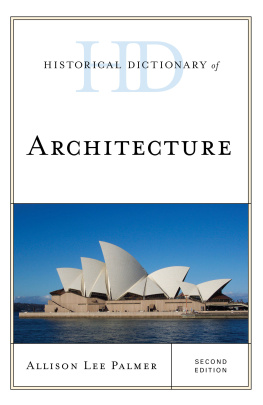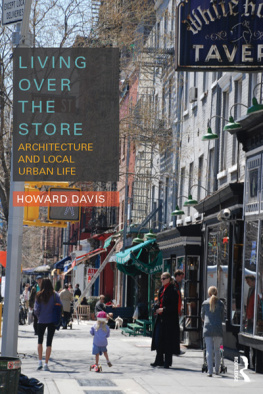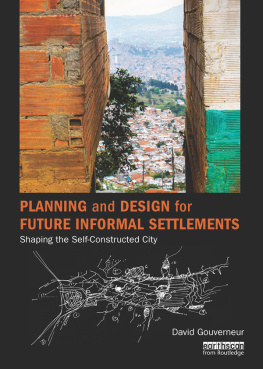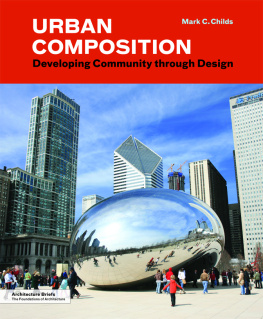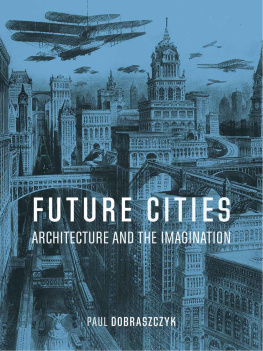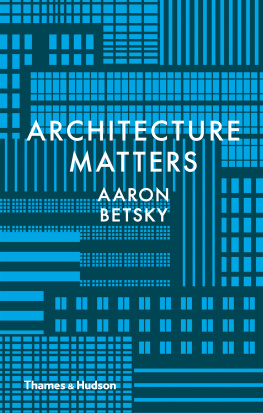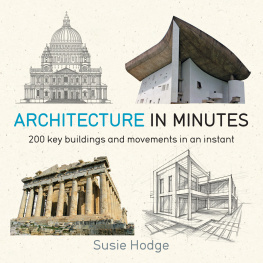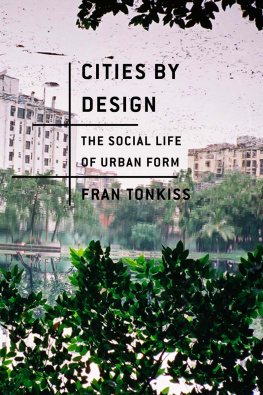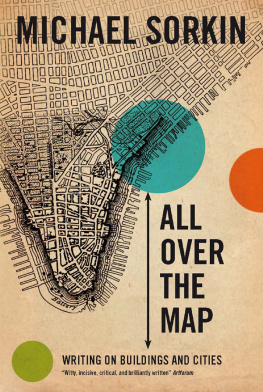READING THE ARCHITECTURE OF THE UNDERPRIVILEGED CLASSES
Reading the Architecture of the Underprivileged Classes
A Perspective on the Protests and Upheavals in Our Cities
Edited by
Nnamdi Elleh
ASHGATE
Nnamdi Elleh 2014
All rights reserved. No part of this publication may be reproduced, stored in a retrieval system or transmitted in any form or by any means, electronic, mechanical, photocopying, recording or otherwise without the prior permission of the publisher.
Nnamdi Elleh has asserted his right under the Copyright, Designs and Patents Act, 1988, to be identified as the editor of this work.
Published by
Ashgate Publishing Limited
Wey Court East
Union Road
Farnham
Surrey, GU9 7PT
England
Ashgate Publishing Company
110 Cherry Street
Suite 3-1
Burlington, VT 05401-3818
USA
www.ashgate.com
British Library Cataloguing in Publication Data
A catalogue record for this book is available from the British Library.
ISBN 9781409467847 (hbk)
ISBN 9781409467854 (ebk-PDF)
ISBN 9781409467861 (ebk-ePUB)
Library of Congress Cataloging-in-Publication Data
Reading the architecture of the underprivileged classes / [edited] by Nnamdi Elleh.
pages cm
Includes bibliographical references and index.
ISBN 978-1-4094-6784-7 (hardback) -- ISBN 978-1-4094-6785-4 (ebook) -- ISBN 978-1-4094-6786-1 (epub) 1. Architecture and society--History--19th century. 2. Architecture and society--History--20th century. 3. Vernacular architecture. 4. Urban poor. I.
Elleh, Nnamdi, editor of compilation.
NA2543.S6R43 2014
720.103--dc23
2014011768
Contents
Nnamdi Elleh
Nnamdi Elleh
Nnamdi Elleh
Edward M. Orlowski
Lilian Fessler Vaz
Sophie Hochhusl
Dr Vasudha Ashutosh Gokhale
Edson Cabalfin
Dr Matthew Barac
Claudia Seldin and Isabela Ledo
Irina Bncescu and Daniela Calciu
Chukudi V. Izeogu
Amy Latessa
List of Figures and Tables
Introduction
1 Reading the Architecture of the Underprivileged Classes
.
2 The Global Context(s): Architecture and Urban Revolution(s) to Transform the Society and the Individual, 19002014
3 Architecture of the Underprivileged Classes and Cubism
4 House of Blues: Shotgun and Scarcity Culture in the Mississippi Delta
5 Cultural facilities in the Opaque Spaces of Brazilian Cities as Instruments of Resistance
6 Grass Roots Modernism: Architecture and Organization in Austrian Settlements and Allotment Gardens, 19211925
7 A Tiny Whole World: Sustainable Design Lessons from the Architecture of Underprivileged Classes
8 The Politics of Nation in the Urban Form of Informal Settlements in Quezon City, Philippines
9 Spatial Misreading: South Africas Urban Future Seen from Within a Township Shack
10 Preparations for the Sports Mega-Events in Brazil and the Popular Protests of 2013
11 On Changes in the Dwelling Conditions of the Romanian Roma under Communism
12 The Political Economy of Low and Moderate Income Urban Residential Development: A Case Study of Port Harcourt, Nigeria
13 Invisible Visibility: The Abuja Housing Deficit as a Political Mirage
TABLES
Contributors Biography
Nnamdi Elleh, PhD, is Associate Professor of Architecture at DAAP, University of Cincinnati, Ohio. He is the Coordinator of the Master of Science and the Ph.D. Program in Architecture. Research interests include modern and contemporary architecture as diverse, multi-centered, regional and localized experiences in different parts of the world.
Edward M. Orlowski is an Associate Professor of Architecture at Lawrence Technological University in Southfield, Michigan. A member of the Board of Directors of the Association for Community Design, he has presented papers to numerous conferences both in the United States and abroad on sustainability and activist design paradigms.
Lilian Fessler Vaz is Professor of Urbanism in the Postgraduate Program, the Faculty of Architecture and Urbanism, Federal University of Rio de Janeiro. She is also a Researcher in the Postgraduate Program 1B at CNPQ, and the author of many books, articles, and chapters in national and international journals. Her research interests include urban history, urban culture, urbanism, and housing in the city of Rio de Janeiro.
Sophie Hochhusl is a PhD candidate in Cornell Universitys History of Architecture Program and a visiting scholar at Columbia University. Her work centers on modern architecture with emphasis on technology and garden studies. Hochhusl is the recipient of the 2013 Graham Foundations Carter Manny Award.
Vasudha Ashutosh Gokhale is the Head of PhD Research Center, University of Pune, India. She earned a PhD degree from Indian Institute of Technology (Roorkee) she is actively involved in research oriented activities. Her areas of interest include disaster management, social issues like slums and poverty, gender issues, and sustainable development in developing countries.
Edson G. Cabalfin, PhD is Assistant Professor in the School of Architecture and Interior Design at the University of Cincinnati. He received his PhD in History of Architecture and Urbanism from Cornell University. His research focuses on the intersections of sociocultural dynamics and the built environment.
Matthew Barac is a senior lecturer in architecture at London South Bank University. His PhD from Cambridge University won the RIBA Presidents Award for Research (2007) and the International Bauhaus Award (2004). A regular contributor to the Architectural Review, he chairs the board of UK charity Architecture Sans Frontires.
Claudia Seldin is an architect and urban planner with a Masters degree in Urban Studies (2008) from the Federal University of Rio de Janeiro (UFRJ), where she also works as a researcher. She is currently pursuing a Doctoral degree at the same University, in partnership with the Bauhaus-Universitt Weimar, in Germany.
Isabela Ledo is a Brazilian architect, urban planner and independent researcher currently living and working in the Netherlands. She holds a degree in Architecture and Urbanism from the Federal University of Rio de Janeiro/UFRJ (2008) and a Masters degree in Urbanism from Delft University of Technology/TU-Delft (2013), Netherlands.
Irina Bncescu is an architect and assistant at Ion Mincu University in Bucharest. Her research interests include poverty, communist legacy, vernacular architecture. She studied Roma communities in research projects (EU-ROMA 2009) and within Venice Architecture Biennials: Roma Preview Pavilion 2008, Listening at the table: Romani women and public housing 2012.
Daniela Calciu is an architect and PhD candidate at Ion Mincu University in Bucharest, Hungary and has developed applied research projects and grassroots initiatives for participatory local development with two Romanian NGOs. She began to explore urban poverty while she was a Fulbright Student at the University of Cincinnati, Ohio, 20122013.
Next page

